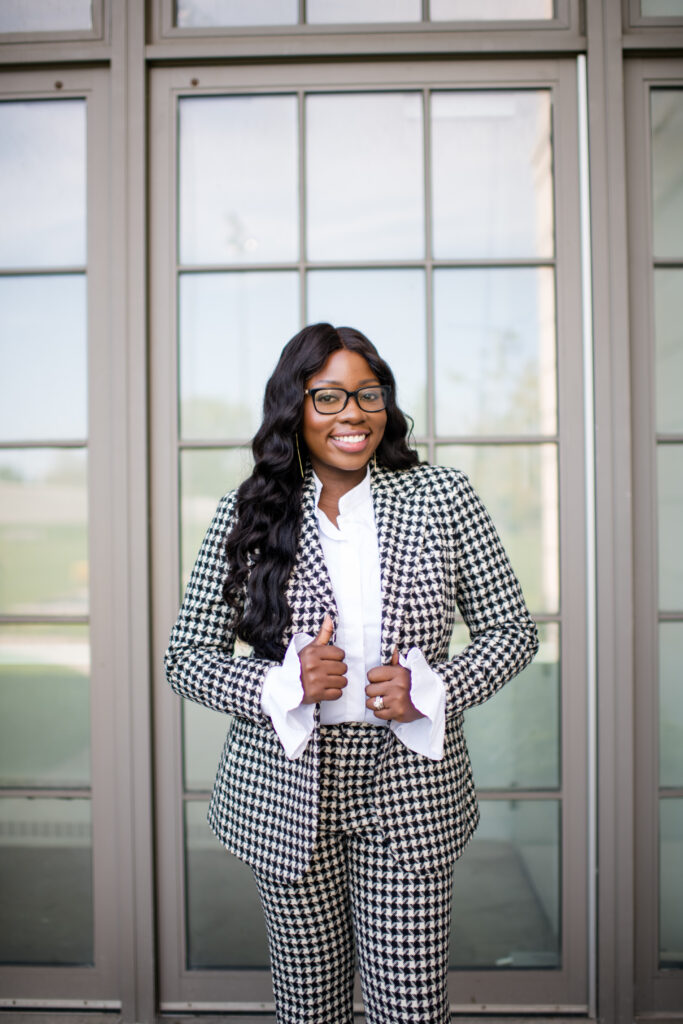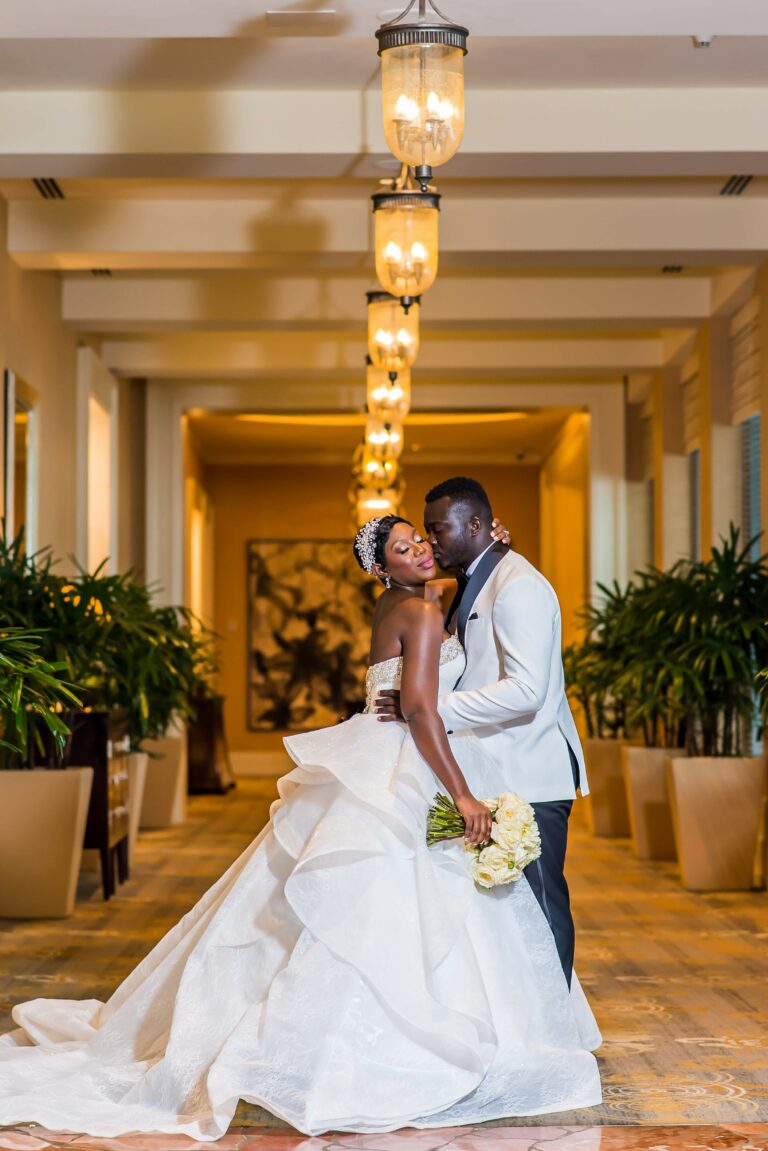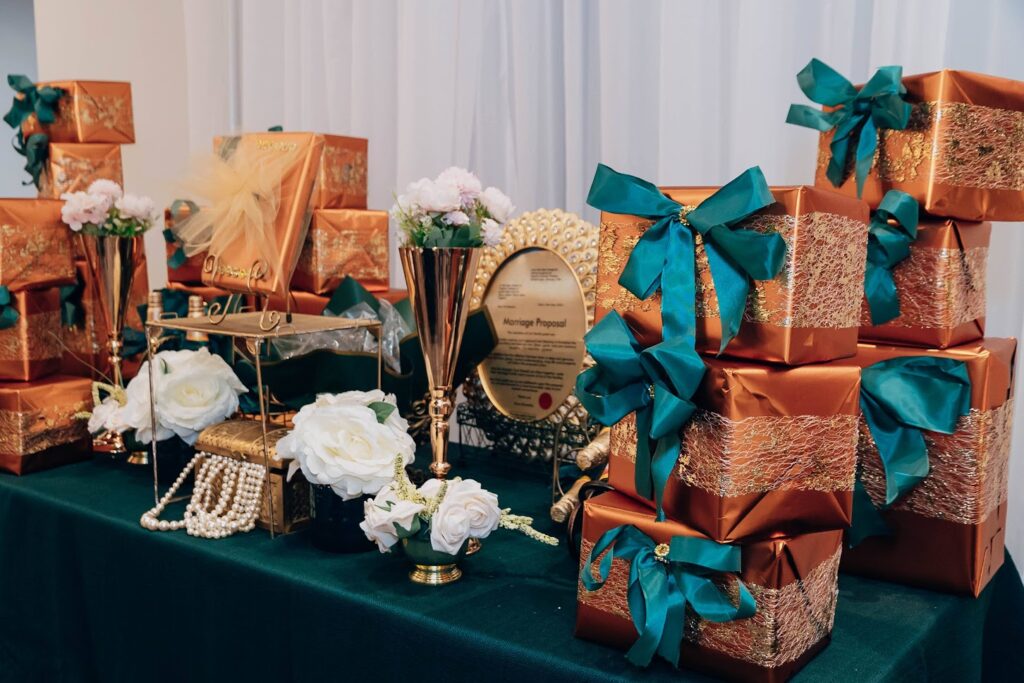
In Nigerian culture, the concept of the dowry or bride price is an essential aspect of the traditional wedding ceremony, symbolizing the union of two families and the commitment of the groom to his bride and her family to take care of her. Rooted in tradition, the dowry is a negotiated agreement where the groom offers gifts, services, and money to the bride’s family as a gesture of respect and appreciation.
This tradition, while steeped in cultural history, is a significant part of Nigerian wedding ceremony traditions, playing a crucial role in uniting families and solidifying the commitment between the bride and groom. The Nigerian wedding dowry signifies not just the joining of two individuals, but also the coming together of two families in mutual support.
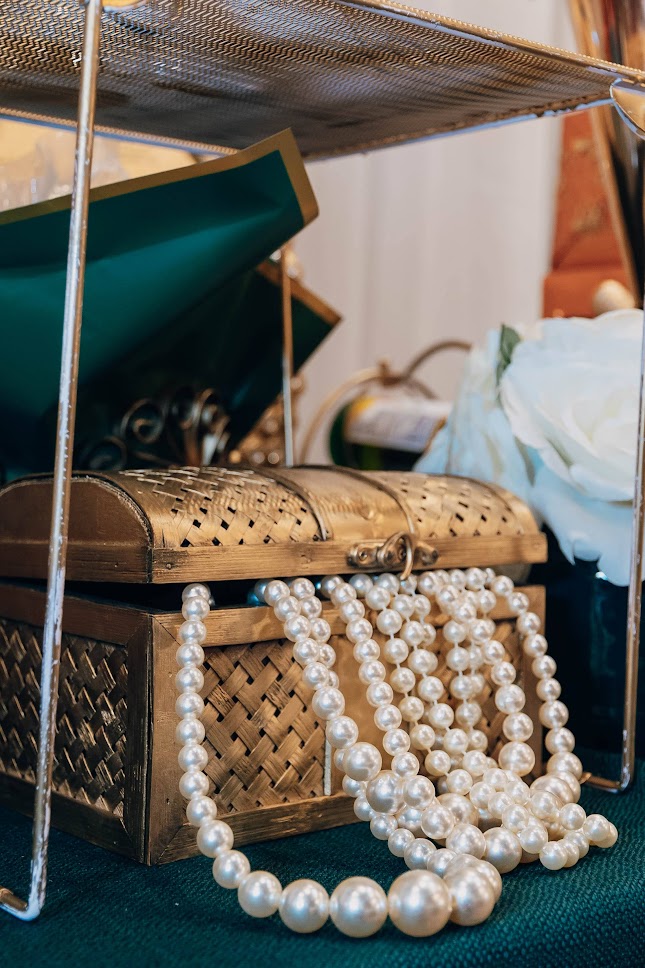
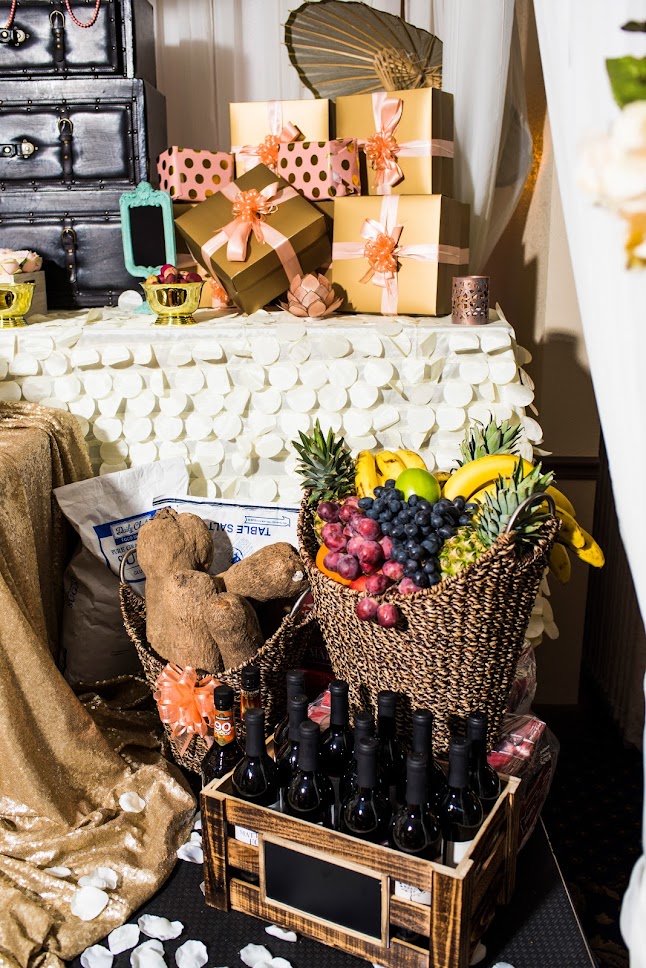

Historical and Cultural Significance of the Dowry in Nigerian Weddings
Historical Origins of the Bride Price or Dowry
The tradition of dowry or bride price dates back centuries and has its roots deeply embedded in Nigerian wedding ceremony traditions. In ancient times, the dowry was seen as compensation to the bride’s family for their loss of a contributing member and a gesture of goodwill on behalf of the groom’s family. Over time, this custom evolved to signify not just a financial exchange but a meaningful act that respects the bride’s family and ensures that the union is built on mutual appreciation.
Cultural Importance
In many Nigerian cultures, the bride price reflects the value placed on family, education, honor, and tradition. It is more than a transactional exchange—it represents the groom’s sincerity in building a new family while continuing the heritage of both families involved. The bride price emphasizes values such as respect, commitment, and family unity, which are integral to Nigerian wedding traditions. It also symbolized the groom’s appreciation for the bride’s family raising a wonderful daughter and how much time and money they invested in her (e.g. her education) being the woman she is today
Symbolism
The dowry holds deep symbolic meaning for both families. For the bride’s family, it acknowledges their role in raising and caring for the bride. For the groom, it symbolizes his readiness to provide, protect, and love his future wife. Both families recognize that the dowry is a significant step in sealing the union and supporting the marriage journey.
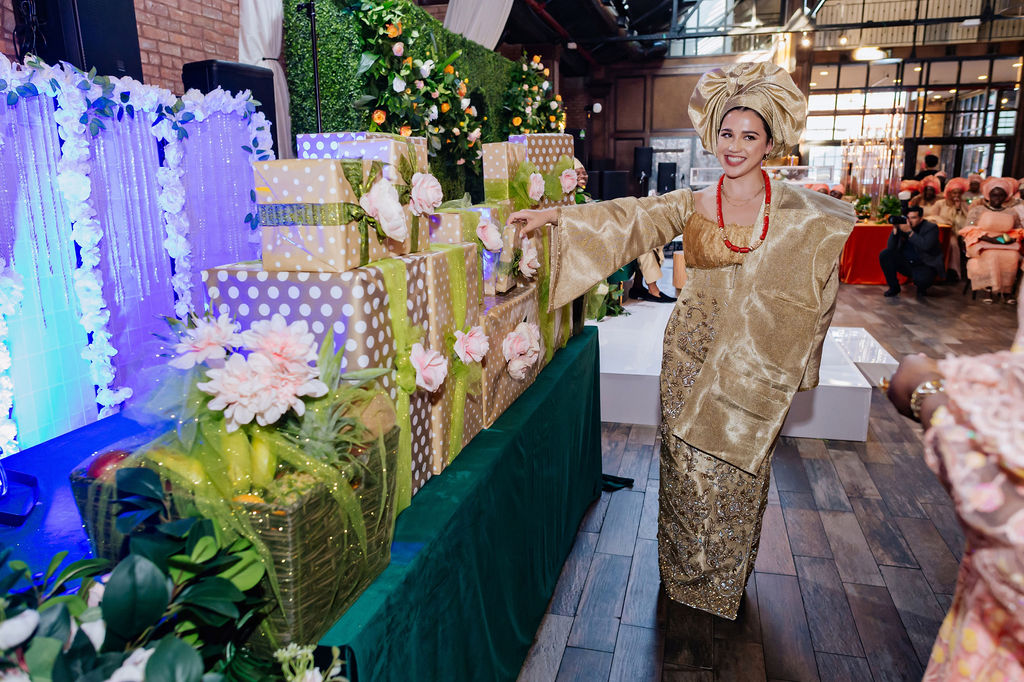
The Process of Negotiating and Presenting the Dowry
The Negotiation Process
The process of negotiating the Nigerian wedding dowry is a formal and respected tradition that usually involves close family members and elders from both sides. Before the wedding, representatives from the groom’s family meet with the bride’s family to discuss the terms of the dowry, which can include monetary gifts, tangible gifts, livestock, and various goods. The negotiation process is handled with care and diplomacy, ensuring that both families feel satisfied with the outcome.
Items Commonly Included in the Dowry
The items included in the bride price vary based on the region, ethnic group, and family expectations. Common items can include money, jewelry, clothing, traditional garments, and livestock such as cows or goats. Additionally, symbolic items like kola nuts or palm wine may be part of the exchange, as they hold cultural significance in many Nigerian traditions.
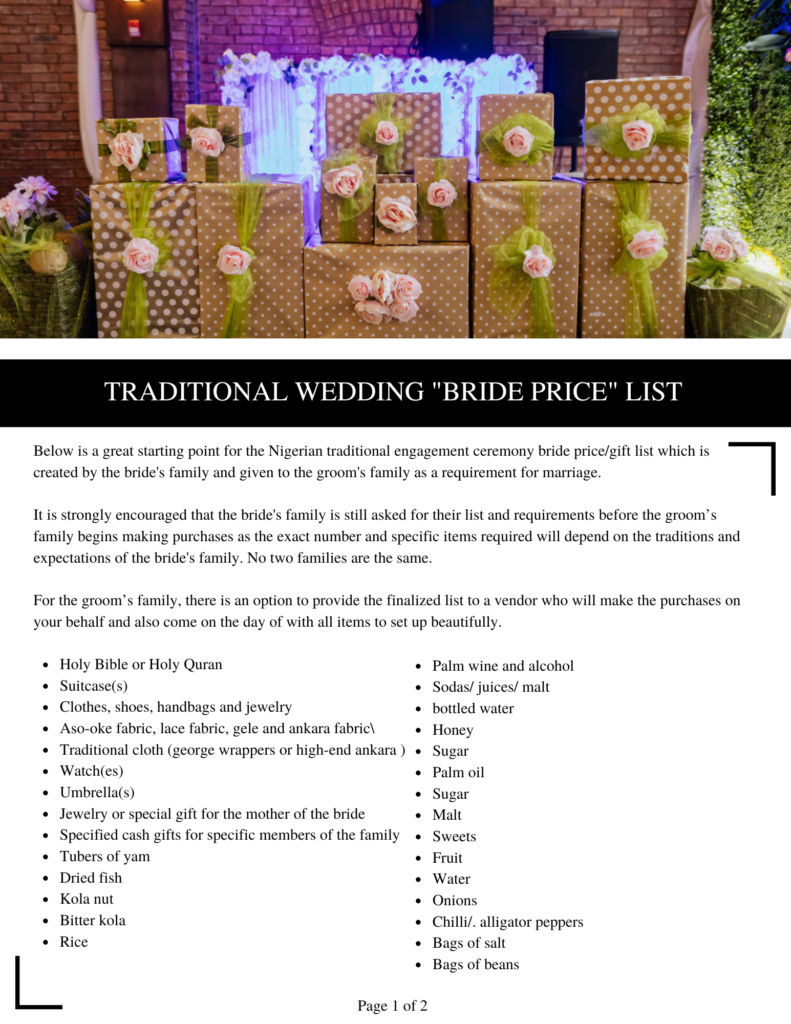
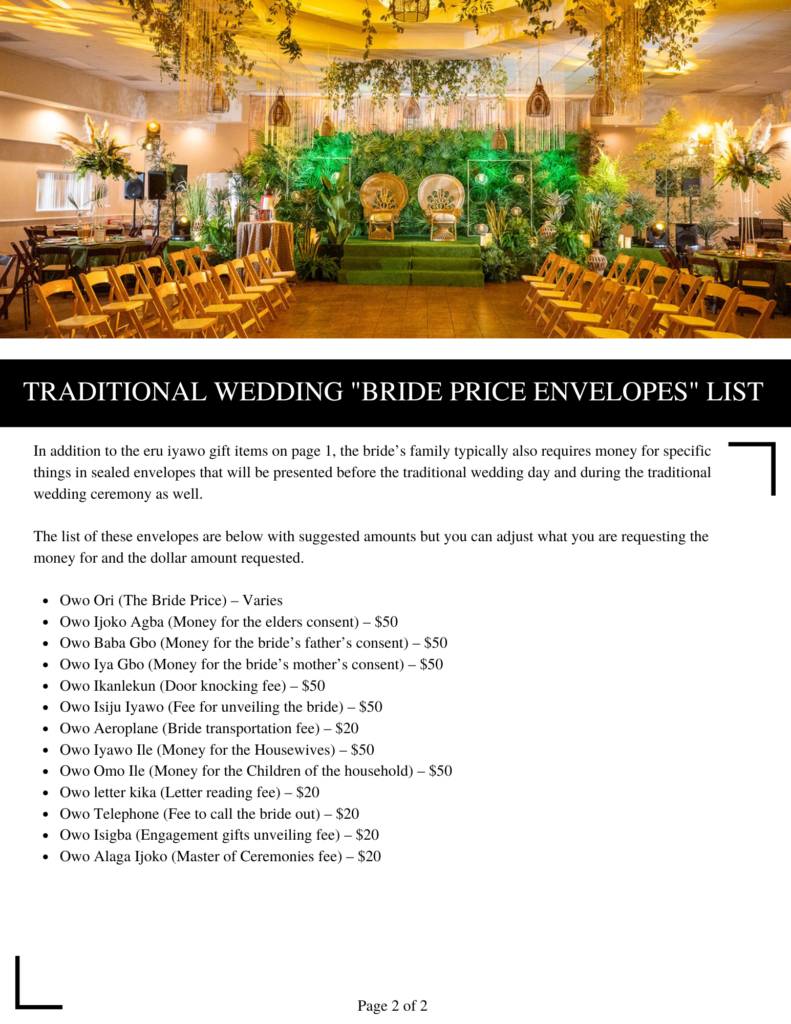
The Presentation Ceremony
Once the dowry has been negotiated and agreed upon, the formal presentation of the bride price takes place during the wedding festivities. This presentation is often done in front of the couple’s families and guests, accompanied by prayers, blessings, and traditional rituals. It marks an important moment in the Nigerian wedding ceremony as it finalizes the agreement between the two families.
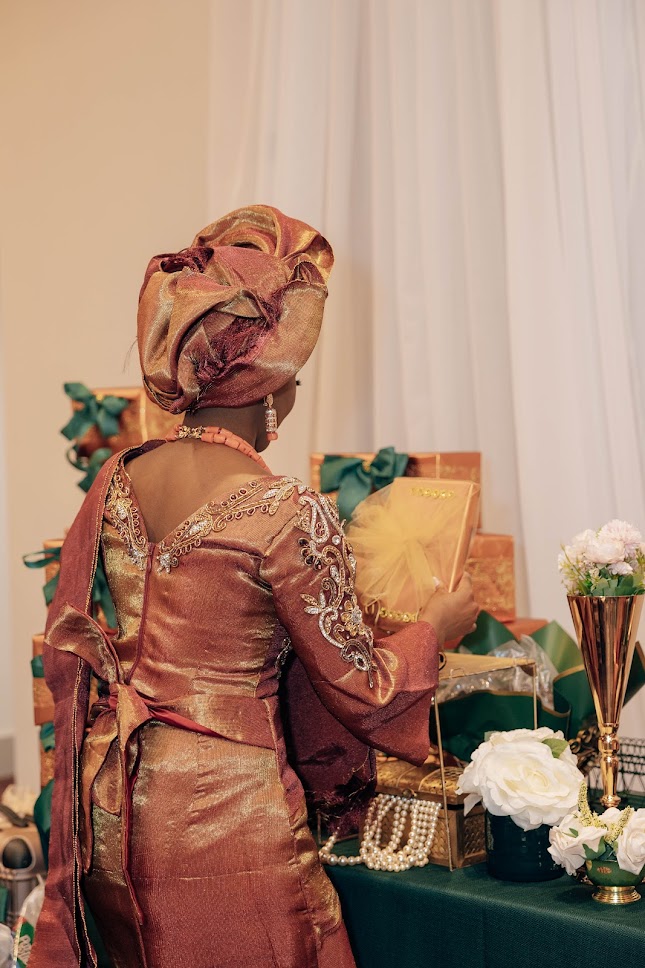
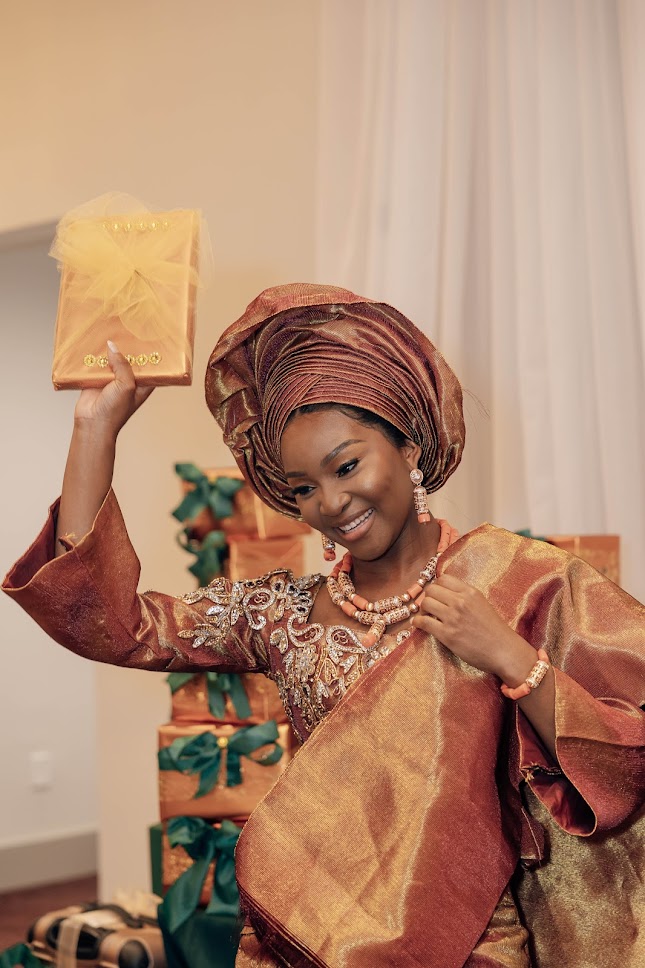
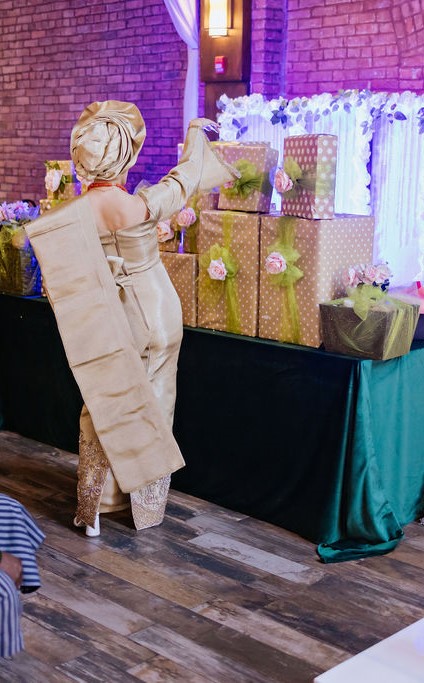
Modern Interpretations and Trends in Nigerian Dowry Practices
Changes in Dowry Practices Over Time
As Nigeria has modernized, some aspects of the Nigerian bride price have shifted. Urbanization, economic changes, and evolving social norms have influenced how dowries are negotiated and presented. In some cases, monetary exchanges have replaced traditional gifts, and the process has become more symbolic than material.
Simplification and Adaptation
Many modern couples and families are choosing to simplify the dowry process to better fit contemporary lifestyles. However, even with these adaptations, the essence of Nigerian wedding dowry practices remains rooted in tradition and continues to be a significant part of wedding ceremonies.
Legal Considerations
In modern Nigeria, dowry practices are largely governed by cultural norms rather than legal requirements. However, it’s important to note that the legal system recognizes marriage based on civil, customary, or religious laws. Couples and families should ensure that their dowry negotiations align with both their cultural traditions and any legal frameworks relevant to their wedding.
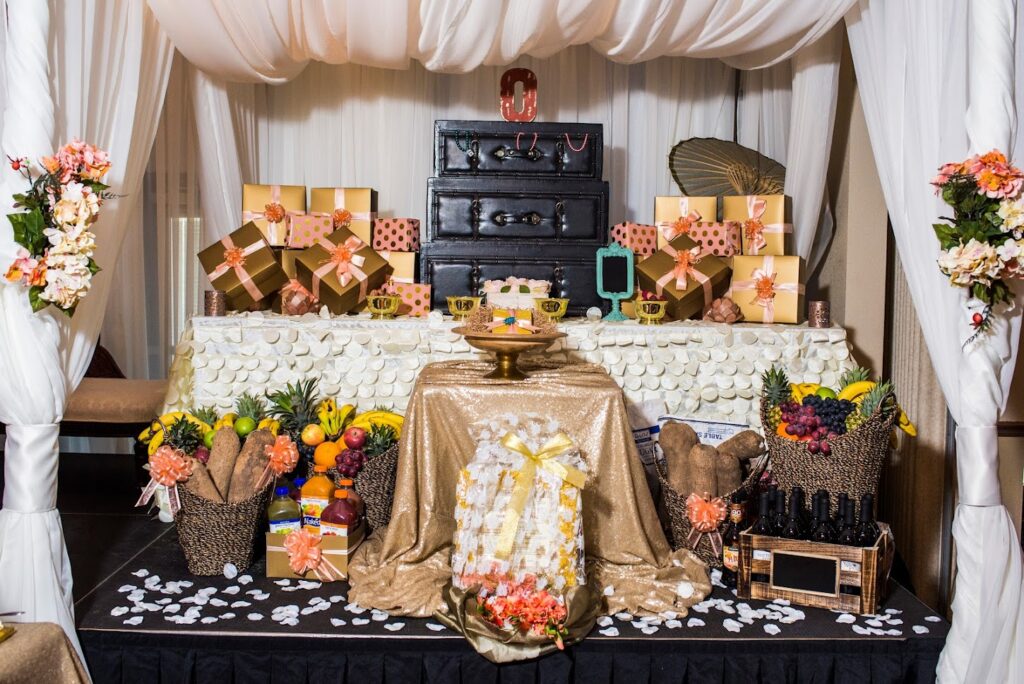
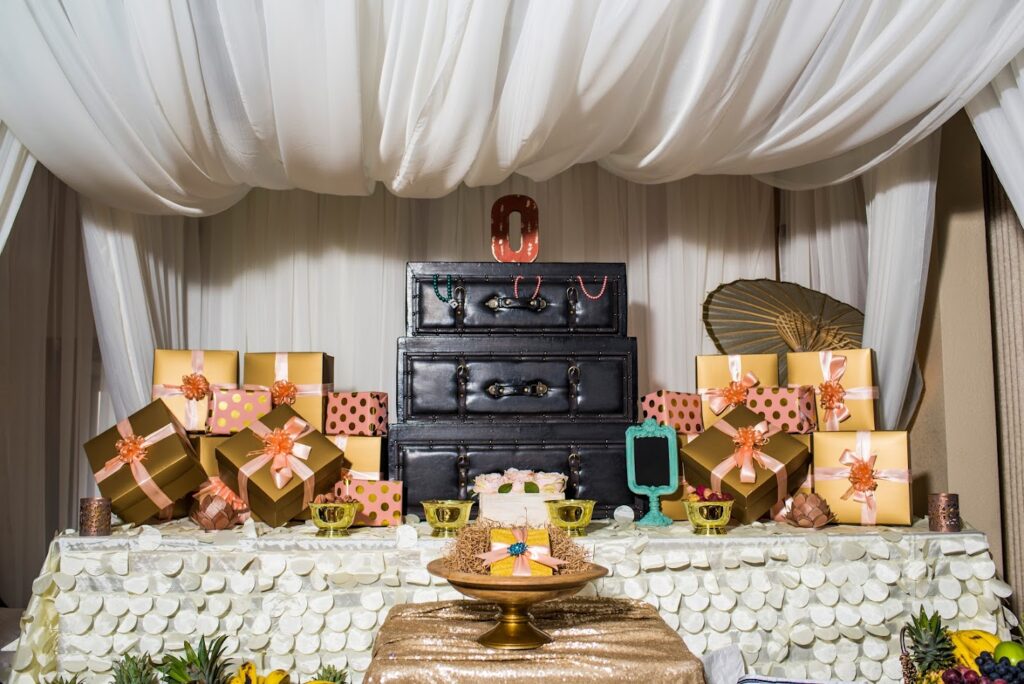
The Role of Dowry in Strengthening Family Ties
Building Relationships Between Families
The Nigerian wedding dowry tradition is not just about the couple; it is about forging stronger bonds between the two families. Dowry negotiations and the presentation ceremony foster mutual respect and understanding between the bride’s and groom’s families. By coming together to agree on the dowry, families form lasting connections that extend well beyond the wedding day.
Symbol of Commitment
In addition to strengthening family ties, the dowry symbolizes the groom’s commitment to his bride and her family. It is a demonstration of his dedication to providing for her and honoring the shared values that bind the two families.
The Emotional and Social Impact
For many Nigerian families, the dowry holds significant emotional and social importance. It is a rite of passage for both the bride and groom and a moment of pride for their respective families. The celebration of the bride price exchange allows families to publicly affirm their support for the marriage and their commitment to upholding tradition.

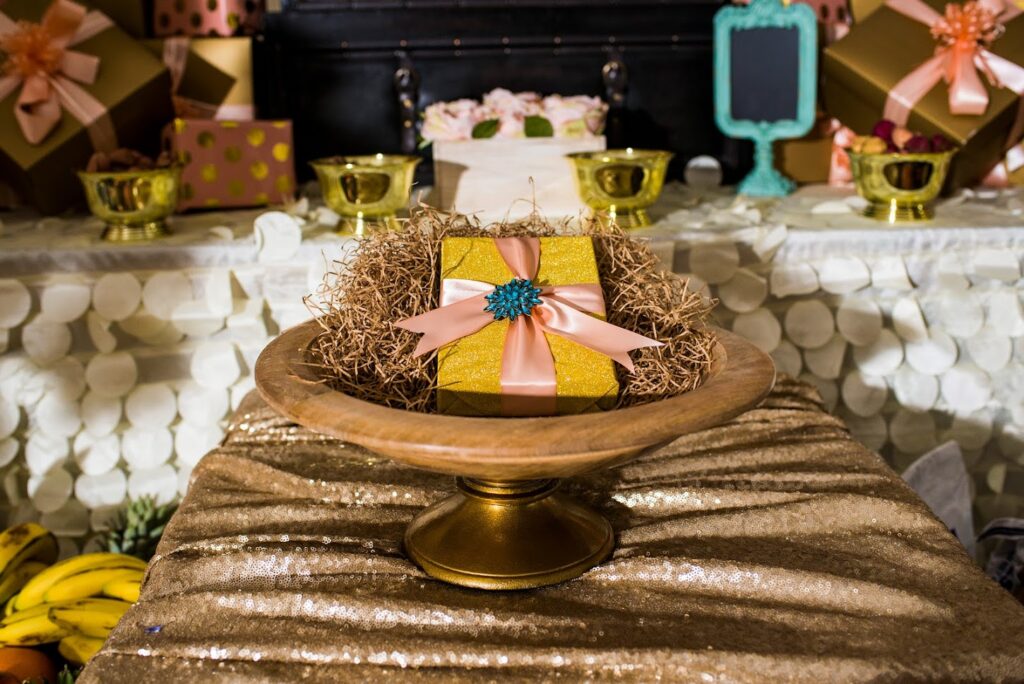
Common Misconceptions and Controversies Surrounding Nigerian Dowry
Misunderstandings about Dowry
There are several misconceptions about the Nigerian bride price, particularly among those unfamiliar with the culture. Some view it as an outdated or transactional practice, equating it to the commodification of marriage or women. However, in Nigerian wedding ceremony traditions, the dowry is a gesture of respect and gratitude, not a financial transaction.
Controversies and Criticisms
In modern times, some critics argue that dowry practices are inconsistent with gender equality, particularly when the focus is placed on financial or material aspects. Others argue that the Nigerian wedding dowry perpetuates outdated gender roles. These controversies highlight the balance that must be struck between respecting tradition and embracing modern values.
Balancing Tradition with Modern Values
Despite these criticisms, many Nigerian families successfully navigate the balance between tradition and contemporary values. Couples often personalize the dowry process to ensure it aligns with their own values while respecting cultural expectations. This flexibility allows the Nigerian bride price to remain relevant in modern weddings without compromising its significance.
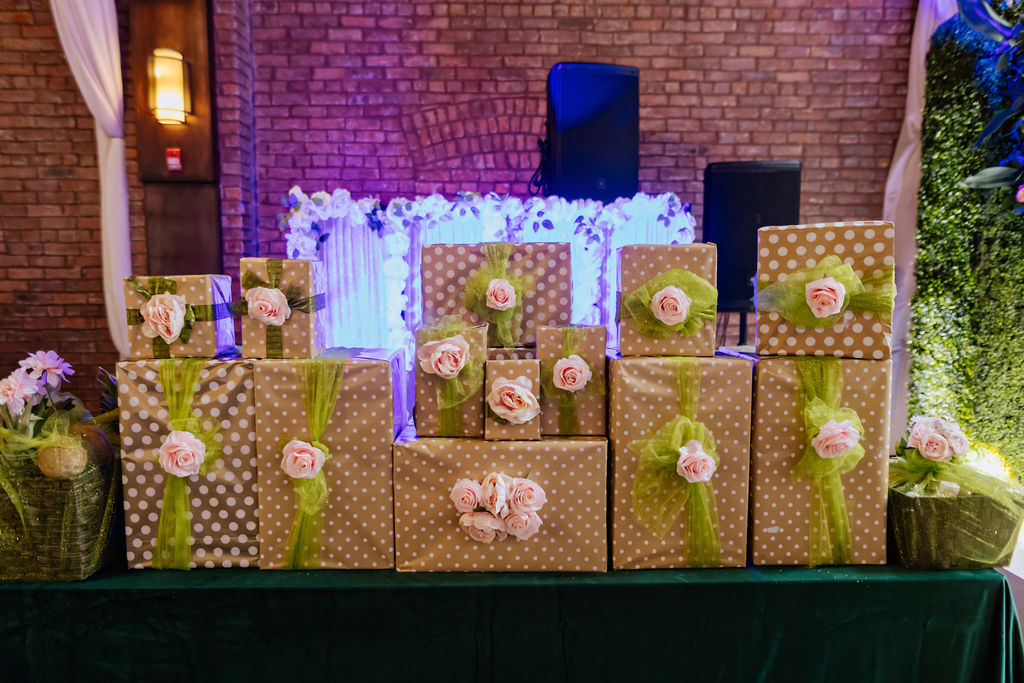
Practical Advice for Couples Navigating the Dowry Tradition
Preparing for Dowry Negotiations
Couples preparing for dowry negotiations should start by having open and honest discussions with their families. Understanding the expectations from both sides will help ensure that the process is smooth and respectful.
Open Communication
Open communication between the bride and groom is key. It’s important for both individuals to express their feelings and concerns about the dowry process to their families, ensuring that the negotiations are handled with mutual understanding.
Seeking Guidance
For couples unfamiliar with the intricacies of dowry negotiations, seeking guidance from elders or cultural experts can be helpful. These advisors can offer advice on navigating the tradition respectfully and smoothly.
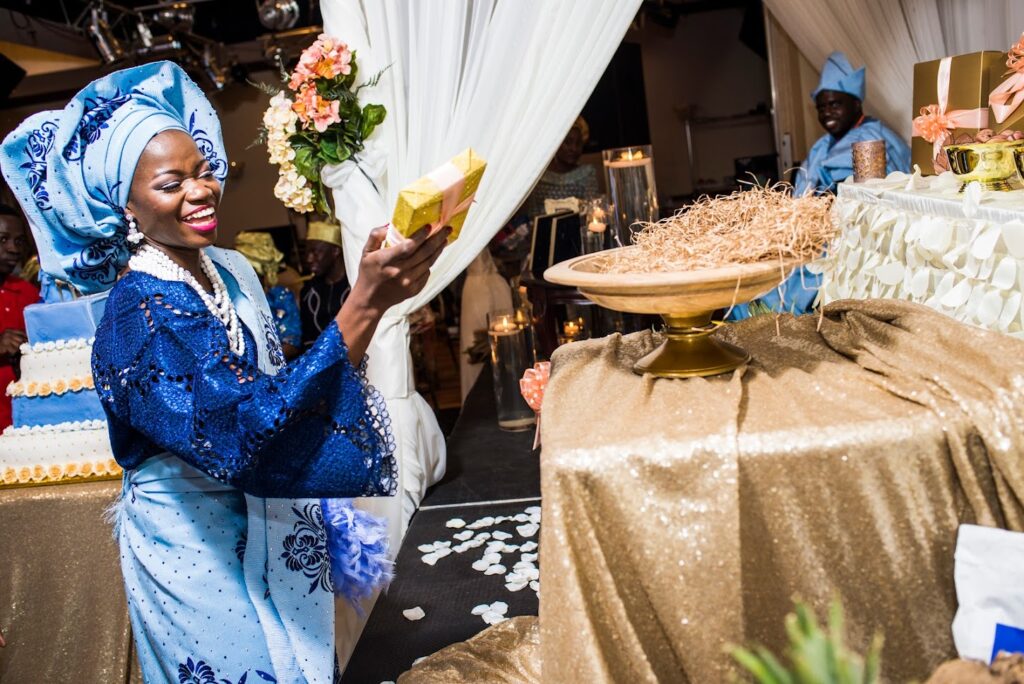
In Nigerian wedding ceremony traditions, the dowry or bride price plays a crucial role in uniting families and symbolizing the groom’s commitment to his bride. Although modern interpretations may adapt to contemporary lifestyles, the essence of the Nigerian wedding dowry remains integral to the fabric of Nigerian culture.
Explore more about Nigerian wedding traditions by checking out our related blog posts, including the significance of Aso-ebi, the art of money spraying, and tips for planning a culturally rich wedding celebration. Share your thoughts or experiences with Nigerian bride price traditions in the comments below, and let’s keep the conversation going!
